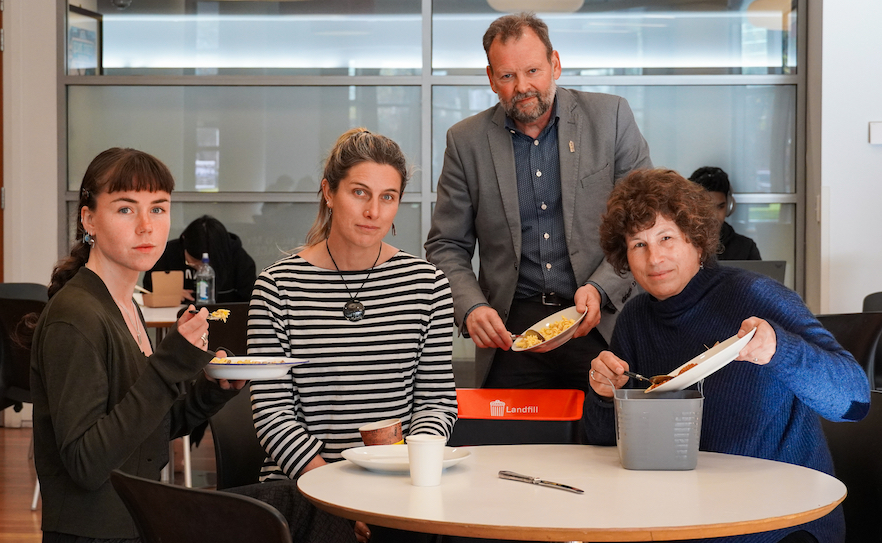In response to the Environment's Select Committee investigation into food waste in 2020, the Government has called on University of Otago researchers to help determine how much food isn't making it to the table in New Zealand.
Food Waste Innovation Otago has been awarded a contract by the Ministry for the Environment to estimate food waste in Aotearoa New Zealand.
Research lead Professor Sheila Skeaff, of the Department of Human Nutrition, says the group will be measuring food loss and waste across the food supply chain.
The scope of the measurement is intended to be broad and aims to capture all imported or domestically produced food and drink throughout the food supply chain. Foods produced in New Zealand includes plants, animals, aquaculture, and fisheries, which will be measured from ready for harvest.
“It includes food waste happening in processing or manufacturing, at the wholesale, retail and redistribution stages, and food wasted at home or out-of-home during preparation and consumption,” she says.
The group is also interested in finding out where food waste ends up.
“Is it, for example, being composted, processed into another food, used for animal feed, entering landfill, or used to produce energy?”
To obtain this information, researchers will be approaching farmers, producers, food distribution, retail, industry, food service, and hospitality businesses, to obtain data many already produce.
The UN estimates that 13.3 per cent of the world's food is lost after harvesting and before reaching retail markets. Furthermore, food that is lost and wasted accounts for 38 per cent of the total energy used in the global food system.
It has set 17 Sustainable Development Goals for member states, including to 'ensure sustainable consumption and production patterns'. Under this goal, member states aim to halve per capita global food waste at the retail and consumer levels, and reduce food losses along production and supply chains, including post-harvest losses, by 2030.
The Office of the Prime Minister's Chief Science Advisor is also currently undertaking a major project on food rescue, food loss and food waste.
Food waste has negative environmental, social, and economic impacts through wasting of resources, greenhouse gas emissions, missed opportunities to achieve food security, and the economic cost to producers, retailers and consumers.
Food Waste Innovation Otago's project will enable these losses to be understood and reduced in the future.

From left: Food Waste Innovation Otago Manager Grace Clare, and Co-Directors Professor Miranda Mirosa, Professor Phil Bremer, and Professor Sheila Skeaff. PHOTO: UNIVERSITY OF OTAGO
For more information
Professor Sheila Skeaff
Department of Human Nutrition
University of Otago
Tel +64 3 479 7944
Email sheila.skeaff@otago.ac.nz
Ellie Rowley
Communications Adviser
University of Otago
Mob +64 21 278 8200
Email ellie.rowley@otago.ac.nz